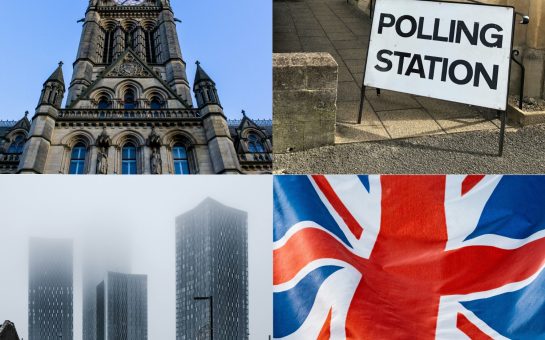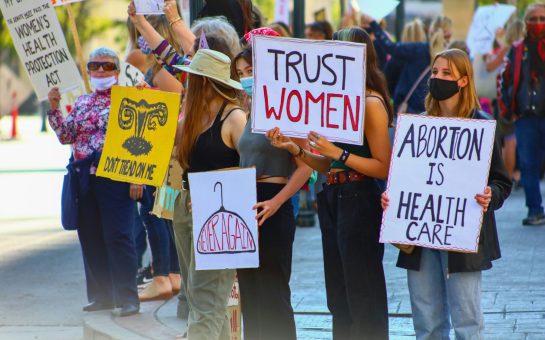I’ve spoken to dozens upon dozens of people about whether or not some drugs should be legalised – those for, those against – and there are some undeniably valid opinions on both sides.
I want to lay bare the truth of these conversations, outlining the most salient arguments, and see where the dust settles.
Last week MM spoke to pro-cannabis campaigner Colin Davies, who believes Manchester should use the extra powers offered through ‘devo-Manc’ to become the UK’s first cannabis decriminalisation trial.
Standby also for the thoughts of former Labour spin doctor Alastair Campbell and the leader of the Pirate Party UK, Loz Kaye.
It should be noted that I don’t smoke marijuana. I don’t even smoke. I have no desire for it, nor do I have any particular care if acquaintances of mine do or don’t.
It’s not unfair to assume there’s a stigma concerning the opinions of people who are known cannabis smokers.
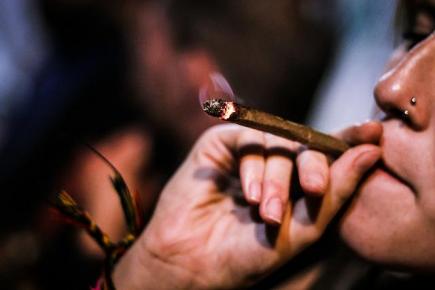
TAXABLE TRADABLE: We must consider that a legal cannabis market would create jobs (© Circuito Fora do Eixo, with thanks)
‘Of course he’s going to want to legalise weed – he smokes enough of it!’ – that is a very easy judgment to make.
But I’m someone with absolutely no affinity towards the substance – it really couldn’t appeal to me less.
Perhaps that makes my opinion less susceptible to accusations of bias. It’s worth considering, at least.
So then, first let’s look at why the government maintain cannabis’ unlawfulness? One of the principal reasons for criminalising the drug in the first place was its disposition to be a ‘gateway’ drug.
It’s believed that taking the less damaging drugs – like cannabis – can lead to using more dangerous substances.
Many people living in the UK, who are addicted to heroin, cocaine or other harmful drugs, have admitted to starting off with marijuana.
According to this theory, legalising cannabis could plausibly lead law-abiding, society-contributing individuals down dangerous paths.
Mr Campbell, 57, told MM: “I still feel very, very uncomfortable about saying that it should be legal to take drugs.
“I feel uncomfortable about the general message but you do sometimes have to look around the world to see what other people are doing.
“I think I’m more interested in the fact that alcohol and drugs are both absolute scourges in British society and we’re not going to solve that until we understand the importance of treatment and rehabilitation, which on both is being cut by this government.
“The arguments for is that you turn it into a taxable product, which makes money for the state and also you can control or at least keep tabs on people’s levels of consumption.”
MM’s Jordan Bluer spoke to young people to find out whether they want to see cannabis decriminalised (filming by James Burford)
What is the ‘general message’ that he’s referring to? That it’s okay to do drugs? This is worth considering in detail.
A government that legalises a particular drug, for example, will undoubtedly face a serious backlash for doing so, regardless of whether or not there was solid evidence to back up the decision.
There will always be people that disagree and this is a sure-fire way to alienate a disapproving chunk of the electorate.
Governments, parties and coalitions have all done far less and still lost voters. This is surely something weighing on the minds of those in power.
What else is there against drug legalisation? Potential health risks. Let’s take cannabis, for instance.
There is significant evidence that tetrahyrdocannabinol (THC) – the chemical in cannabis responsible for its mind-altering effects – causes long-term, irreparable damage.
Cannabinoid nerve receptors, whose job it is to interpret the THC, are often bunched up in areas of the brain linked with time perception, memory and pleasure.
It is thought that by habitually smoking cannabis, thereby habitually releasing THC, the smoker ‘clogs’ up his/her cannabinoid receptors – it’s easy to see how many scientists have come to the conclusion that there is a risk of long-term impairment.
Cannabis and the psychological effects it has on its consumers may have been responsible for many vehicle and workplace accidents across the world.
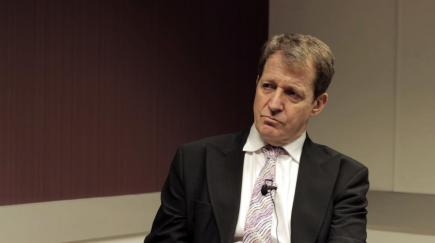
‘SCOURGE ON SOCIETY’: Campbell says something must be done to control consumption of cannabis (© Chat Politics, via YouTube, with thanks)
Consumption creates addiction. And many critics believe that legalisation will lead to increased consumption. If that’s true then one of the biggest arguments against legalisation is that of creating a culture of addiction.
“The so-called ‘war on drugs’ has essentially failed the people that it’s supposed to help,” said Loz Kaye, leader of the Pirate Party UK.
“It’s always been the Pirate Party point of view that drugs needs to be dealt with as a health issue and not as a criminal issue.
“The current policy pushes all of this into the hands of people who are deeply unpleasant and frightening criminals. As soon as you criminalise anything, you push it into the hands of a criminal.
“In Manchester we’re seeing some serious problems at the moment with syringes abandoned in the centre of town and this is something that a lot of people are concerned about.
“If we focused on this as a health issue rather than a criminal issue we’d be further forward.”
This is a view echoed by many people I’ve spoken to. Criminalising drugs makes the user of that drug a criminal. Decriminalising drugs makes the user of that drug a law-abiding citizen.
Of course the problem isn’t as simple as that, because that’s not taking into account any mention of health risks (and costs) and dependence rates. But it’s worth noting.
Perhaps, just because something is criminal, there’s an extra stigma attached to it that makes people look down on others for using it. If weed was legal, for example, and had been for years, would we have the same views?
Mr Kaye, 44, said: “The real reluctance [to decriminalise drugs] is out of a fear of tabloid headlines. They know that certain sections of the press would absolutely hammer them as being ‘soft on drugs’.
“For me, you can’t accuse those of us who want to actually see practical change as being soft on drugs.”
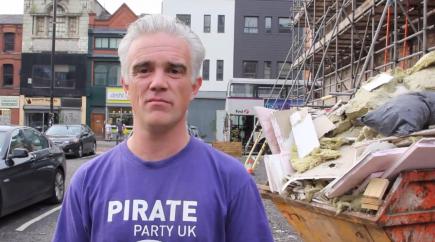
FAILING THE PEOPLE: Loz Kaye says the ‘war on drugs’ has failed those it’s meant to help (© Pirate Party UK, via YouTube, with thanks)
He added: “I’ve picked up more syringes on the sides of Rochdale canal than I think most of the MPs. To me, what’s soft is not wanting to act in a way that would actually do some good and bring some real benefits.”
Another potential benefit to decriminalising, particularly in the case of cannabis, is the positive effects it could have on the economy.
It’s no secret there’s a giant underground market for trading drugs. If that market was legal, and therefore regulated, it’s thought the economic impacts could be vast.
A taxable, tradable product with a proven demand in a market that would surely attract large-scale investment – with my business hat on, this sounds like a no-brainer, right?
Successful decisions have been made using much less information. And we haven’t even considered the fact that a legal drugs market would create jobs.
Mr Kaye said: “The other thing we have to do is listen to evidence that, time and time again, the Home Secretary has simply refused to listen to.
“It’s time they actually bring forward an evidence-based drugs policy.
“The current criminal framework is simply not working and we’ve got to take it out of the hands of criminals.”
A regulated cannabis trader would be subject to standards, in much the same way as food suppliers are.
There’s an argument that, if legalised, regulators could determine cannabis’ potency, thereby limiting medical and psychological effects.
MM’s Richard Brown got Councillor James Baker’s views on cannabis legalisation in December
Campaigner Colin Davies told MM: “The demand for cannabis is huge. With a regulated, taxed supply chain, Manchester can lead the way to a safer way; a new way.
“Leaving cannabis in the black market is criminal itself.”
So where have we landed? There is significant proof that there are harmful and lasting effects involved in drug use.
Politicians live and die by their policy decisions and a severe change on drug law would certainly provoke criticism.
But there are tangible benefits, too.
The UK’s economy could benefit, which may be particularly important given the recent recessionary hardships and the current instability of the Euro.
It’s fair to say what’s legal isn’t always ethical. But does that mean to say something illegal is always unethical?
Main image courtesy of Prensa 420, with thanks.
